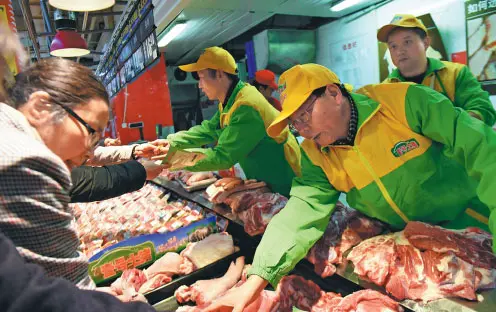South Korea and Japan confirmed differences on Japan's wartime sexual enslavement of Korean women after holding the first director general-level talks on the " comfort women" issue.
Lee Sang-deok, director general of the South Korean Foreign Ministry's Northeast Asian Affairs Bureau, met in Seoul Wednesday with visiting Junichi Ihara, head of the Japanese Foreign Ministry 's Asian and Oceanian Affairs Bureau.
It was the first time South Korea and Japan held talks solely about the issue on comfort women, or a euphemism for Korean women coerced into sex slavery for the Japanese Imperial Army during World War II.
After the two-hour dialogue, Ihara told reporters that it was a meaningful discussion to better understand each other's stance, and a South Korean government official was quoted by local media as saying the Japanese side showed sincere attitude during the talks.
Despite the official rhetoric, both sides were known to have just confirmed the lingering gaps on the issue.
Victims of the former South Korean sex slaves have demanded the Japanese government acknowledge, apologize and atone for its wartime crime.
In the 1990s, Japan set up the so-called Asian Women's Fund, a private-public fund to compensate for former sex slavery victims in Asia, but many South Korean victims refused to take money as it did not directly come from the Japanese government.
Japan has claimed all issues related to its wartime atrocities, including the forcible recruitment of Korean women as prostitutes, were resolved under the 1965 treaty that normalized diplomatic relations between the two nations.
After confirming such differences, the two sides agreed to hold another round of talks next month. Another South Korean government official was quoted as saying detailed schedules for the next dialogue will be decided on through diplomatic channels later.
The official said other issues, including territorial disputes Japan wanted to include in the dialogue agenda, can be discussed during the next round, and Ihara told reporters that Japan and South Korea need to exchange views on various issues.
South Korean President Park Geun-hye has refused to meet one-on- one with Japanese Prime Minister Shinzo Abe since she took office in February last year due to Abe's wrong perception of history. Park and Abe met first last month in the Netherlands, but it was organized and arbitrated by U.S. President Barack Obama.
Ties between Seoul and Tokyo have been strained since Abe returned to power in December 2012 due to quarrels over historical issues, including the comfort women issue and territorial disputes over the islets, known as Dokdo in South Korea and Takeshima in Japan, lying halfway between the two nations.
The frosty ties worsened further after Abe paid a visit last December to the controversial Yasukuni Shrine, which honors 14 Class-A war criminals along with other war dead.
The United States has pressed its two closest Asian allies to mend ties ahead of Obama's visit to Japan and South Korea from next Wednesday. Obama was scheduled to arrive in Seoul on April 25 for a two-day visit after staying in Tokyo for three days.
South Korean Foreign Ministry spokesman Cho Tai-young told a press briefing Tuesday that more rounds of talks will be held unless the issue on comfort women is resolved at one time, hinting that agreement would be hard to be reached during the first round of talks.
More than 200,000 young women, many of them South Koreans, were forced into sex slavery at the Japanese military brothels during the devastating war triggered by the Japanese militarists. Among 237 South Korean women who identified themselves as former sex slaves, only 55 are still alive.
 简体中文
简体中文

